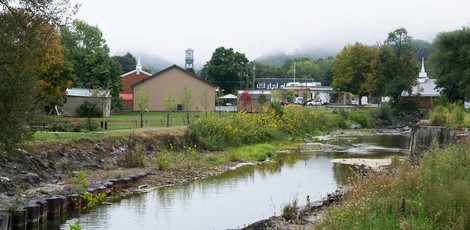Your podcast discovery platform
Curious minds select the most fascinating podcasts from around the world. Discover hand-piqd audio recommendations on your favorite topics.

piqer for: Climate and Environment Global finds Globalization and politics
I'm a freelance journalist, currently based in Madrid. I used to be a News Producer at CNBC in London before, but I thought a little bit more sun might do me good. Now I write for several news organizations, covering a range of topics, from Spanish politics and human rights for Deutsche Welle to climate change for La Marea.
Could God Be Behind Climate Change?
Yes. Or at least, that's what residents of White Sulphur Springs, West Virginia, believe. The town, with a population of 2,400, lost eight neighbours to the floods that hit the state last year. Many of the people living there believe that the recent extreme weather events are related to Jesus' return.
One would think that people who get hit so hard, so directly, by the consequences of climate change, would be the first to embrace the facts proven by science. But that's not always the case, as shown in this excellent article by Meera Subramanian.
Resorting to God as an explanation for climate change, or as an excuse not to take action about it, is not new. We've recently seen it in the words of EPA chief Scott Pruitt:
‘True environmentalism is using natural resources that God has blessed us with.’
Of course, Pruitt could have other reasons to avoid climate action, but that's another story.
Most certainly, citizens of White Sulphur Springs are not profiting from climate change, so their faith is real. Where does it come from?
Subramanian explores the conflicting narratives of science and religion, directly with the people who were affected by the floods. Science, on one hand, is objective and complicated. Ultimately, this narrative is closer to the truth:
Over the last half-century, this narrative tells us, there has been a 70 percent increase in the amount of precipitation in the heaviest Northeastern storms, from West Virginia up to Maine.
However, some inhabitants of that very region seem to take heed in religion, rather than science. The fact that a large proportion of disaster relief groups are faith-based, and the deep roots of evangelical churches in the area are among the reasons, but, ultimately, it's a matter of education.
No matter how fast Irma's winds roil or how many feet of rain Harvey dumps, it is a story the faithful have heard before, and — this is the tricky part — in some ways, long for.
Stay up to date – with a newsletter from your channel on Climate and Environment.
